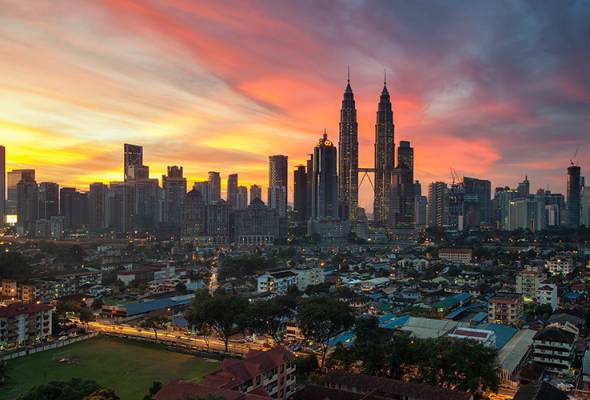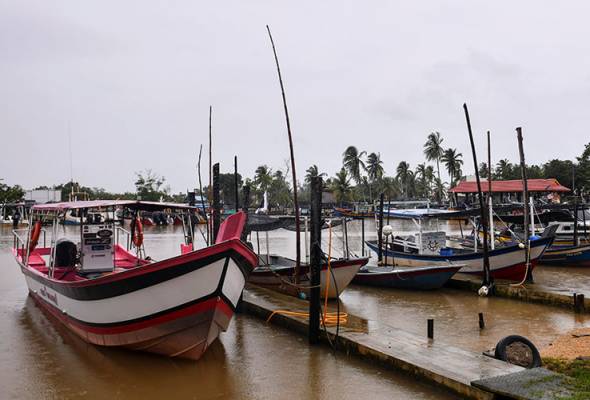
Published in Astro Awani, Malay Mail, theSundaily, and Khmer Times, image by Astro Awani.
The current administration’s plan to formulate an Act of Parliament on sustainable food waste management marks a highly commendable step for Malaysia in our quest to address food security. Nonetheless, food security is not only about ensuring sufficient access to safe and nutritious food, but also about the ability of the nation to produce sufficient food using available natural resources.
On August 3, Housing and Local Government Minister Datuk Seri Reezal Merican responded to the Member of Parliament (MP) for Kemaman YB Che Alias Hamid that his ministry is collaborating with the Japanese Environment Ministry to develop food waste management guidelines.
Although there is no specification on when to introduce the food waste management Act in Malaysia, the Ministry of Housing and Local Government is currently transforming the national solid waste management framework – from a linear economy into a circular economy model.
A linear economy, which comprises principles of take-make-dispose (as shown in Diagram 1), is not a sustainable approach as the finished products ultimately will turn into waste.
On the other hand, a circular economy involves extending the lifespan of products, recycling waste and reducing the use of resource inputs that would eventually reduce the amount of waste sent to landfills.
Diagram 1 shows the difference between the linear economy and circular economy approach.
Diagram 1: Difference between linear economy versus circular economy
Source: CC 3.0 Cathrine Weetman, 2016
However, it will be an enormous task for Malaysia to drastically reduce the amount of food waste alone. Even before the pandemic (i.e., in 2019), food waste made up 30% of waste at landfills, according to the Solid Waste Management and Public Cleansing Corporation (SWCorp).
The Covid-19 pandemic witnessed more food waste nationwide – from 16,964 tonnes per day in 2019 to 17,041 in 2020.
Out of 17,007 tonnes of food waste generated in Malaysia every day in 2021, 24% (4,081 tonnes) belonged to edible food waste (i.e., leftover meat and vegetables), equivalent to one-and-a-half Olympic-sized swimming pools.
Moreover, Malaysians generated 12,926 tonnes of inedible food waste like bones and fruit peel – more than triple the amount of edible food waste – daily last year.
Thus, the substantial rise of food waste in the country implies that more natural resources (i.e., water, land, energy) will be used unproductively and in a non-sustainable manner. Despite Malaysia having abundant natural resources to produce food, the country still falls into the food insecurity trap as more food waste find its way to landfills.
With a rising population, does that mean Malaysia will require more landfills to host the food waste?
When many Malaysians have low awareness of the proper way to dispose food waste, it is plausible we may need to set up more landfills to accommodate the increasing volume of food waste in the next few years.
As of October 2021, there are 141 solid waste landfills in Malaysia, whereby 116 are open dump sites, 21 sanitary landfills (engineered with anti-pollution features to allow safe decomposition), and four residual waste landfills.
When more landfills are required to accommodate food waste, it implies that the food-water-energy nexus will become even harder to realise.
According to the Food and Agriculture Organisation of the United Nations (FAO), water and energy security are also linked to food security. Without water and energy, farmers cannot proceed with food production.
Aside from food waste, there are other types of solid waste that may prevent Malaysia from recognising the food-water-energy linkage.
In the same study by SWCorp in 2019, plastics have the second highest waste at landfills at 24.8%, followed by disposable diapers (11.1%), paper (10.5%), textile (4.8%) and waste from gardens and parks (4.1%).
EMIR Research has written an article that Malaysia used 148,000 tonnes of plastic packaging for food in 2020 alone. As previously tightened lockdown measures restricted people from going out dining or working, more Malaysians ordered food via online delivery platforms such as GrabFood and FoodPanda.
To avoid spillage, many food and beverage (F&B) outlets often put the cooked food in a plastic container and wrap the plastic container with multiple layers of plastic. Some Malaysians also switched their habit to ordering goods via e-commerce platforms such as Shopee and Lazada. As a result, this would result in higher plastic usage when more Malaysians are ordering food or goods online.
While the government is trying to reduce the delivery of food waste to landfills by introducing a new law, now comes the time to review existing national legislations associated with food security, water security and energy security.
It will supplement and complement the sustainable food waste management Act as well as support our efforts towards ensuring food security.
Following are some of the national legislations for the current administration to consider reviewing:
Food Act 1983 & Food Regulations 1985
Further promoting food safety and nutrition by extending the ban of food additives to the permitted limits or levels.
Environmental Quality Act 1974
– A new category of sustainable food waste management under the wider ambit of environment management needs to be introduced. This is also in line with the policy recommendations of the special task force set up in 2019 to update the EQA.
Water Services Industry Act 2006
To include acts of sabotage, including economic crimes, as part of the legislation to increase the overall range of penalties and punishments and complement and supplement the legislation on river and lake pollution under the Environmental Quality Act 1974.
Local Government Act 1976
To strengthen enforcement powers of local authorities in dealing with issues on illegal disposal and dumping of food waste in commercial/industrial and residential areas, etc.
Solid Waste Management and Public Cleansing Act 2007 (Act 672)
– To extend the adoption of this legislation to all states – as part of the wider effort to strengthen the elements of the circular economy nationwide.
To make it mandatory for all local councils to adopt waste-to-energy (WTE) mechanisms, with particular reference to food waste as part of the promotion of the circular economy. The target is to have at least WTE plant per major or city council (Majlis Bandaraya, Majlis Bandar). The WTE can be part of the revenue generation sources for local councils.
Example would be a thermal treatment plant, where unrecycled solid waste can be converted into heat, steam and other kinds of renewable energy to be reused or by a refuse-derived fuel (RDF) power plant.
In addition to the Food Donors Protection Act 2020 that in place since last year, the government could provide tax incentives to encourage more industrial players to donate their excess food to underprivileged communities.
In reducing the amount of food waste in the landfills, the excess food could feed around three million people three meals daily instead.
Former Minister of Energy, Science, Technology, Environment and Climate Change YB Yeo Bee Yin also stated in her new book, “The (Un)Finished Business”, that Malaysia requires good enforcement aside from good laws.
Although the Department of Environment (DOE) increased the number of enforcement actions of the Environmental Quality Act 1974 by 100% from 2018, it is still impossible to comprehensively monitor environmental quality and take enforcement action from time to time as there are only about 1,400 DOE enforcement officers nationwide.
Besides strengthening the food-water-energy nexus through legal refinement and enforcement, the federal ministers and high-ranking civil servants should often go to the ground, understand the hardship people are facing and develop comprehensive solutions to enhance the well-being of the people.
Thereby, EMIR Research has several policy suggestions for the federal government to look into:
Work together with NGOs, supermarkets, wholesale markets, hotels, restaurants and food stalls to collect surplus unsold food and channel it to low-income households in People’s Housing Project (PPR) flats, elderly in welfare homes, as well as the homeless community;
Initiate National Foodbank Month to create more awareness among the people on the consequences of food wastage; and
Organise educational campaigns from the primary school level onwards to encourage children not to waste food and keep food waste in the designated area set by the canteen operator. Thus, the inedible food waste can turn into compost, which can transform into fertiliser for gardening or food production.
Malaysian must be proactive in reducing the amount of solid waste (either food, plastics or paper).
When more Malaysians are aware of the importance of disposing of solid waste in a proper manner, we may be able to close down some landfills due to lesser waste generated nationwide.
During this rising food price inflation period, it is also practical for Malaysians to make a check-list based on their inspection of their refrigerators and kitchen cabinets before shopping. A grocery list will assist Malaysians in only purchasing required food items and save unnecessary expenditure.
When all Malaysians could put in the effort to reduce solid waste, it will result in lower greenhouse gas (GHG) emissions in the next few decades. Eventually, Malaysia also could realise the goals of reducing the GHG emissions intensity by 45% in 2030.
Amanda Yeo is Research Analyst at EMIR Research, an independent think tank focused on strategic policy recommendations based on rigorous research.

